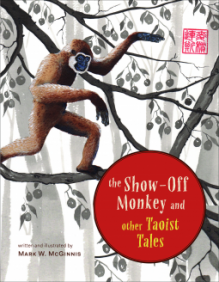

I don't know what it is with Ursula Le Guin, but every one of her books, whatever the rate I end up giving the whole, have at least one instance where she emotionally wreaks me, and it's always exquisite. It's like looking at the page and feel like telling her "Damn, that's one beautiful dagger you are stabbing me with"*
I feel like pointing it out just because in this case, since it happens to clear my 3stars Le Guin base bar with ease to nestle by World is Forest, Forgiveness, and Left Hand. Maybe even like a caveat. Just so I can qualify that I'm biased and it's all emotionally stabbed city here.
And what stabs ME particularly, beyond the punctual sad, is the theme. While at first sight the theme seems to be religion and spirituality vs technologic advance or consumerism, what it's actually about is culture and all the infinite components that make it, and all the ways introducing an outsider element, even with the best intentions, can fuck it up enough for it to devour itself, or at least severely up-heave and endanger, what it's about is balance, and fanaticism, and dogmatic corruption. The Telling is the passing of cultural information. In it's basis, it's words, stories, oral and written, and funnily enough, when it comes down to it, science and religion are part of it, right along with dances, meals, music, rites, customs, history.
That is my interpretation for this book. As a person that loves books, and myths, and folklore, that seats to watch movies and series as a bonding activity with my family, that cleans while blasting music, that was taught religion formally even if never practiced, that learnt my regional dances from my grandmother and uncles, to cook from my grandfather, to love reading from my mother, and science from my father, this is like a love letter received, and like a verbalization of all that strange juggling or balancing act one does inside with all the pieces that make home/root/culture and seem incongruous, or even like they'd require alternate suspense of disbelief and double-though. Culture is a mess, and it's incongruous, and unfathomably vast, and it's made of big and little pieces that sometimes contradict, and it does never really make sense. But it's the ground you stand upon; to try to erase it is to loose your step. And its life-blood is the word.
*(and if you get internet in heaven, I hope you get this... from my catholic raised, agnostic leaning towards atheism ass... which is a bad joke that only makes sense in theme)

by Mark W. McGinnis
This is a book of retold Chinese fables, based on the writings of the ancient philosopher Chang Tzu but written in modern language that any child could follow.
The tales are very short and each has a morale at the end to teach the reader something about the foibles of human nature.
The pictures are beautifully done and in full color in what looks like an oriental style. Overall the books is beautifully presented and would make a nice gift to a child, though adults would enjoy it too!

Do I dare call this full of symbolism, and therefore feel the need to scratch under the surface of these tales? Then again, is there any fairy tale worth it's salt that is not so.
Lets start saying that the way this is written is incredibly sensual. I was surprised because I was sure the first tale (The Bloddy Chamber), would turn up into a hardcore purple prose BDSM. It does not become explicit, but the erotic charge and the tug of war between desire for freedom and sexual or base hungers, innocence and a curiousity for corruption, is heavy and all encompassing on that one and several others in this collection (The Tiger's Bride, The Erl-king).
Puss in Boots was hilarious in all it's terribleness. Not one character in it can be called good, our narrator least of all, and yet. Lots of laughing OMG, no!
The Snow Child was... How do you pack it that fast? It takes infinitely more to unpack.
All of them are incredibly evocative. Also disturbing. Oh, and they screw with your mind with the POVs and tenses too.
I'm a still quite discombobulated by much of this, and I'm pretty certain I don't get even most of what this is conveying, but frankly, at some point I started researching some fairy-tale stuff for background, and found out there are whole freaking books essaying on the meanings of this collection, so I reckon I'm good enough just keeping it floating on the back-burners of my mind.